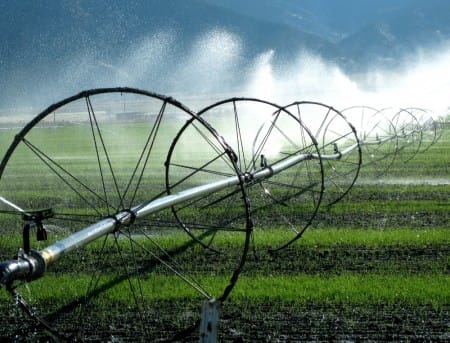Senator Feinstein chooses farmers over fish


Why is it that state politicians can’t seem to understand that water is a necessity, and not a game? US Senator Dianne Feinstein (D-California) recently decided to take up the clarion call of water for needy Central Valley farmers, in a proposal attached to the AgJOBS bill currently in the Senate. Feinstein describes the AgJOBS bill as one which “would provide a workable and sustainable fix to the agricultural labor problems” currently being felt in California. As part of a larger plan to harness the agricultural know-how of California, Feinstein is also backing S-1759, the Water Transfer Facilitation Act of 2009.
Surprisingly, Feinstein has been criticized from both sides* for her support of the act, which would serve to provide additional, federally-backed water supplies for Central Valley farmers currently feeling a stranglehold in terms of water allocations. The act, introduced by Feinstein nearly six months ago in October 2009, during the 111th session of Congress, seeks “to authorize certain transfers of water in the Central Valley Project, and for other purposes.” If fully enacted, the act would set up a means by which irrigation water could be delivered to Central Valley users, from the water divisions of San Felipe, Friant, West San Joaquin and the Delta. The act would not be allowed to override those regulations set forth by the San Joaquin River Restoration Settlement Act. The Secretary of the Interior would be responsible for setting up and facilitating “voluntary” transfers of water from abundant areas to needy areas. Ultimately, the transfers would be secured between water providers within the Central Valley and between the CVP and state water projects.
This bill may not be perfect, but it is a real solution to a problem which is not going to go away by itself. Water was cut from the already-dry Central Valley via loopholes used by environmental activists who saw no need to consider the potential impact on their fellow human beings. At the same time, the same activists were touting endangered species, the farmers who grow the nation’s food got to understand what it feels like to be of secondary importance to a small fish.
Some of Feinstein’s most ardent critics have pointed to the possible environmental impacts of the act, as well as the possible negative consequences for local marshes and fish populations. It is odd, indeed, that certain voices cry foul when local species are hypothetically in danger, and the same voices stay silent when the human populations are currently in danger of losing their own livelihoods and source of water. One may be feeling a sense of déjà vu, as a similar argument was previously put forward over the San Joaquin-Sacramento Delta water use controversy and its impact on the smelt.
Kudos to Feinstein for considering the plight of hardworking Central Valley farmers and residents. They may not have voted for her, but she is doing her job by representing their concerns and offering solutions. Water is not a game, and it is nice to see Feinstein rising above those who see water as a tool meant for their own interests, rather than a necessity which every American, and every human being deserves access to.
* Editor's note: For a more critical perspective of Feinstein's support for this bill, read here.


